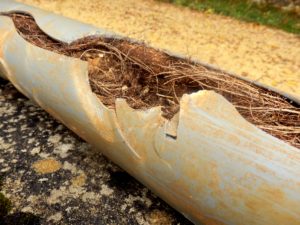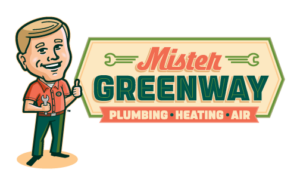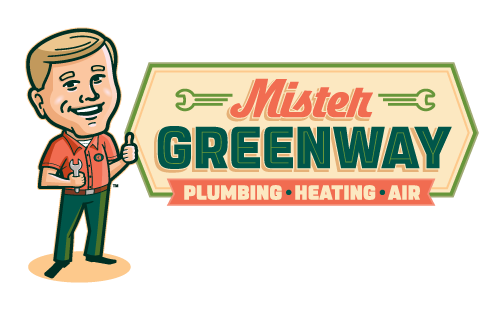Every home needs repairs now and then. Some are simple like tightening a leaky faucet or replacing an old showerhead. But others, like sewer line problems, need professional attention. Sewer line inspections catch issues early, preventing major damage and costly repairs.
This guide covers when to get an inspection, common warning signs, and what plumbers look for during the process.
Key Takeaways
- Sewer line inspections use a camera to identify blockages, leaks, and damage.
- Warning signs include backups, slow drains, and sewer gas smells.
- Common causes of sewer problems include tree roots, improper disposal, and pipe deterioration.
- Regular inspections prevent costly repairs and unexpected plumbing failures.
Types of Sewer Inspections
 Municipal sewer lines serve whole neighborhoods. However, homeowners must take care of the lateral sewer line. This line connects their house to the main system. If a problem occurs within your property line, it’s on you to fix it.
Municipal sewer lines serve whole neighborhoods. However, homeowners must take care of the lateral sewer line. This line connects their house to the main system. If a problem occurs within your property line, it’s on you to fix it.
A professional sewer line inspection involves inserting a high-resolution camera into the pipes. The plumber records the footage, reviewing it for cracks, blockages, or collapsed sections. This process helps pinpoint problems without unnecessary digging.
7 Signs You Need a Sewer Line Inspection
Sewer problems don’t always start with a flood. Small warning signs appear first. If you notice any of the following, an inspection could save you from a plumbing disaster.
1. Sewer Backup in Toilets or Showers
A backed-up toilet or sewage in the shower isn’t normal. If it happens more than once, your main sewer line may have a blockage.
Common causes include:
- Flushing wipes, diapers, or grease down the drain.
- Tree roots growing into pipes.
- Poor installation or misaligned joints.
2. Strange Noises Coming from Drains
Gurgling sounds in sinks, bathtubs, or toilets mean air is trapped in the pipes. If multiple drains make noise, the issue is likely in the main sewer line. A professional inspection will identify whether the problem is a simple clog or something more serious.
3. Bad Smells Coming from Drains
Sewer gas should never be inside your home. If you smell rotten eggs near sinks, showers, or basement drains, it could mean a blocked or broken vent pipe. Left untreated, sewer gases can cause health problems and signal bigger plumbing failures.
4. Slow Drains Throughout the Home
One slow drain? Likely a localized clog. Multiple slow drains? That’s a red flag.
When sinks, bathtubs, and toilets drain sluggishly, there could be a blockage in your sewer line. A camera inspection determines the cause and best fix.
5. Low Water Levels in Toilets
If toilet water levels fluctuate—too high one day, too low the next—it could mean a hidden leak or sewer line obstruction. An inspection can confirm if the issue is a shut-off valve problem, a cracked pipe, or a more severe sewer line issue.
6. Unusual Lawn Growth or Sinkholes
A leaking sewer line acts like a fertilizer, creating sudden patches of bright green grass. In severe cases, leaking pipes cause the ground to erode, leading to sinkholes or soft spots in the yard. If you notice either, schedule an inspection before the damage worsens.
7. Cracks in Your Home’s Foundation
Shifting soil caused by a leaking sewer line can lead to foundation cracks. If cracks suddenly appear in walls or basement floors, plumbing could be the culprit. A professional inspection can confirm if sewage leaks are weakening your home’s structure.
Most Common Issues Found During Sewer Line Inspections
 Sewer inspections reveal hidden problems before they escalate. Here’s what plumbers find most often:
Sewer inspections reveal hidden problems before they escalate. Here’s what plumbers find most often:
Blockages from Improper Disposal
Flushing anything besides toilet paper can clog pipes. Wipes, feminine products, and grease harden inside the sewer line, leading to blockages that require professional removal.
Tree Root Infiltration
Tree roots naturally seek water sources. If they find a crack in your sewer pipe, they grow inside, causing severe blockages. Hydro-jetting can remove roots without damaging trees or pipes.
Pipe Deterioration
Older pipes, especially clay and cast iron, corrode over time. Cracks and weak spots lead to leaks and structural failure. An inspection identifies worn-out sections so they can be replaced before they cause major issues.
Accidental Damage
Construction work, heavy equipment, or even shifting soil from floods and earthquakes can crack or misalign sewer pipes. An inspection ensures no hidden damage threatens your home’s plumbing.
When to Get a Sewer Line Inspection
Certain situations call for immediate inspection:
- After a flood – Heavy rains or flooding can push dirt and debris into sewer lines.
- After construction work – Digging or new landscaping can accidentally damage buried pipes.
- Before buying or selling a home – A sewer inspection prevents unpleasant surprises after closing.
Schedule a Sewer Line Inspection Today
 Sewer problems don’t fix themselves. The longer they go unnoticed, the more expensive the repairs become. If you’ve noticed slow drains, backups, or unexplained foundation cracks, it’s time for an inspection.
Sewer problems don’t fix themselves. The longer they go unnoticed, the more expensive the repairs become. If you’ve noticed slow drains, backups, or unexplained foundation cracks, it’s time for an inspection.
If you’re in Nashville, TN, or the surrounding area, contact Mister Greenway for professional video inspection services. We’ll send the cavalry.
FAQs
What is a sewer line inspection?
A sewer line inspection involves inserting a camera into your home’s sewer pipes to check for clogs, leaks, or structural damage. The plumber records the footage and reviews it to determine if repairs are needed.
How often should I have a sewer inspection?
If your home is over 20 years old, an inspection every few years helps prevent major plumbing failures. If you’ve had past sewer issues, yearly inspections may be necessary.
How long does a sewer inspection take?
Most inspections take 30 minutes to an hour, depending on pipe length and condition.
Can I perform a sewer inspection myself?
DIY sewer inspection cameras exist, but professional plumbers have high-resolution equipment that provides better visibility. If you suspect a sewer problem, hiring a pro is the best option.
Final Thoughts
Sewer line problems don’t announce themselves with a flood, at least not at first. The warning signs are subtle: gurgling drains, odd smells, slow toilets. Catching these early can save thousands in repairs.
If you’ve noticed any of these signs, don’t wait. Schedule a sewer line inspection today. And if you’re in Nashville, TN, call Mister Greenway. We’ll send the cavalry.
